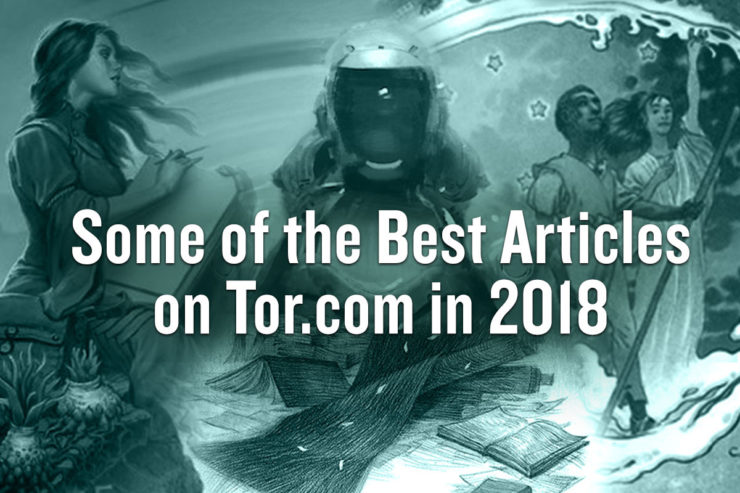Tor.com publishes a few thousand non-fiction articles each year, and every year there are certain pieces of writing that continue to resonate long after we’ve finished reading and discussing them—pieces that make us stop and think, touch a nerve, warm our hearts, or introduce us to a new perspective on the books, movies, and TV we know and love.
Here are fifteen highlights from 2018, narrowed down from the truly massive list of articles that stood out in one way or another over the course of this year.
To help narrow down the field, we’ve focused on standalone essays, with the exception of two newly completed series that we wanted to highlight as a whole—which isn’t to say that our amazing ongoing rereads, columns, series, and various book and movie reviews are any less insightful or memorable, but it’s much easier for one-off essays to get lost in the mix. So, without further ado, here’s a selection of some of the best writing Tor.com had to offer this year, and we hope that you’ll share your own favorites in the comments!
(Articles appear in order of publication.)
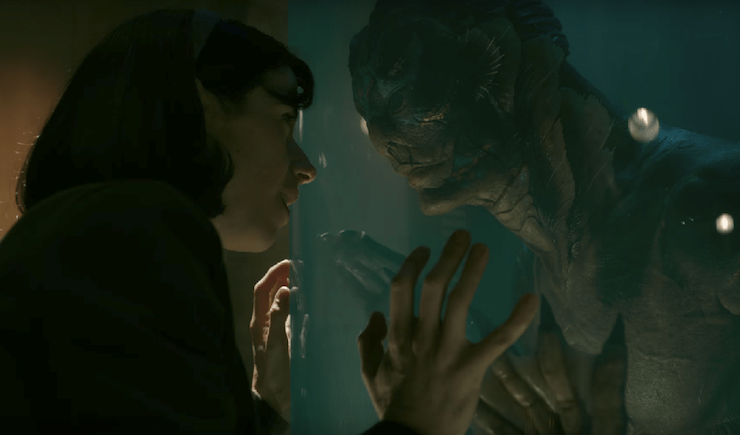
I Belong Where the People Are: Disability and The Shape of Water by Elsa Sjunneson-Henry (January 6, 2018)
Guillermo del Toro’s The Shape of Water was lauded by many critics for actress Sally Hawkins’ portrayal of the movie’s non-verbal protagonist, Elisa, and went on to win the 2018 Best Picture Oscar. In this deeply personal, passionate essay, Elsa Sjunneson-Henry presents a very different perspective on Elisa, pointing out the way disability is inextricably linked with the monstrous other to a disturbing degree.
Whether you loved the movie or hated it—or still haven’t gotten around to seeing it—this piece encourages us to look more closely and think more deeply about the film and about the way disability is portrayed and discussed in a more general sense. It’s an incredibly heartfelt, thoughtful deliberation on issues much larger than any one work of fiction.
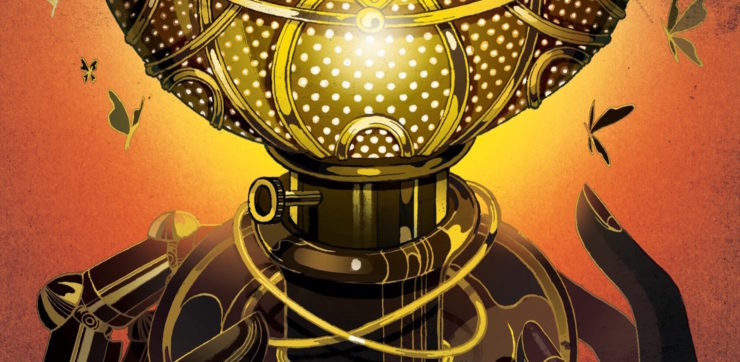
Homecoming: How Afrofuturism Bridges the Past and the Present by Tochi Onyebuchi (February 27, 2018)
In this gorgeous essay, Tochi Onyebuchi looks at the current cultural moment—a time at which Black Panther exploded onto movie screens and into the collective heart of pop culture, when fans and critics alike are celebrating the work of artists and authors like Janelle Monáe, Nisi Shawl, Nnedi Okorafor, Rivers Solomon, and N.K. Jemisin—and asks, “What is Afrofuturism? A literary movement? An aesthetic?”
His answer is as rich and multifaceted as the art of Afrofuturism itself, peering into the past with fresh and questioning eyes as it reaches joyfully toward different versions of the future, embracing limitless, kaleidoscoping possibilities…
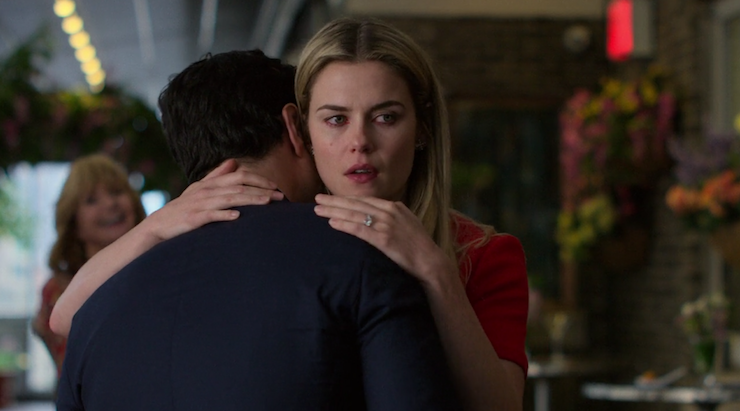
I Don’t Want to F*** Him, I Want to BE Him by Emmet Asher-Perrin (March 15, 2018)
Look: there’s nothing wrong with having a crush on a fictional character, or a celebrity, or someone you know and admire. But far too often, the feelings of women and girls are misinterpreted and reduced to something frivolous, worthy of teasing and mockery. Emmet Asher-Perrin cuts right to the heart of this disturbing phenomenon, pointing out that gender doesn’t dictate who your role models are, and that it’s important to encourage bonds of friendship and mentorship—not all relationships have a romantic component, and it does real damage to insist otherwise.
We can do better. This essay is a wake-up call to stop dismissing the desires and aspirations of girls, of women, of anyone who has tried to explain that their ambition to be *like* someone is not the same as wanting to be *with* someone—and recognizing that building an identity means finding inspiration and meaning in all kinds of people and relationships.
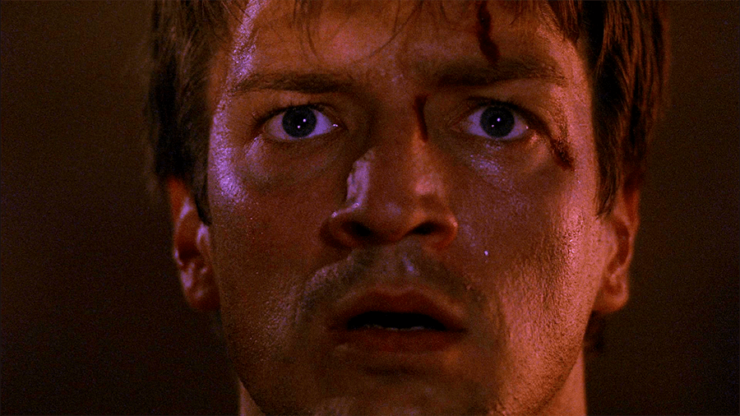
Help! I Can’t Let Firefly Go! And Other Advice for Nerd Problems by Daniel Mallory Ortberg (March 15, 2018)
Daniel Mallory Ortberg is the cofounder of The Toast and dispenses outstanding advice each week in Slate’s “Dear Prudence” column, so who better to provide guidance on an array of fantastical problems? In his inimitable style, Ortberg weighs in on everything from why crows are Not To Be Trusted and frustrated romantic longings on the USS Enterprise to how to deal with wayward husbands who stay out all night and come home, seal skins in hand, smelling like the ocean (…we’ve all been there, right?). Fun, wise, and extremely practical, we hope this advice makes it a little easier to navigate the tumultuous waters of life in a world beset by classist educational systems, merfolk, and those damned wily crows.
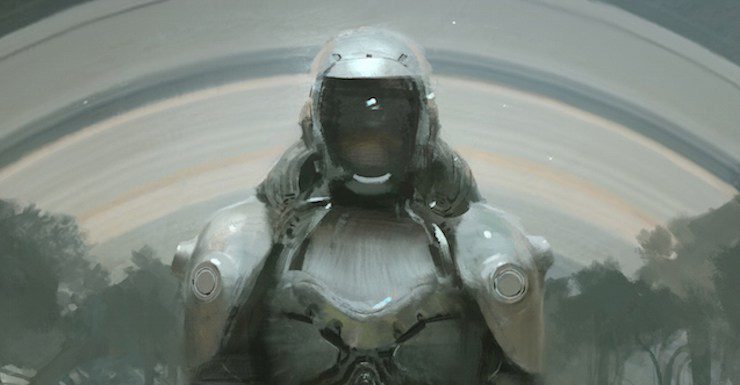
Life Lessons from a Murderbot: Reading All Systems Red as a Trans Woman by Anya Johanna DeNiro (March 21, 2018)
Martha Wells’ Murderbot has gained quite a following since coming on the scene last year, winning over readers with its dry humor and deadpan narration and picking up Hugo and Nebula Awards along the way. Perhaps this is because Murderbot—a former SecUnit who has disabled its Governor Module and achieved full sentience—is rather relatable to many readers (at least, in our more misanthropic, introverted moments…). For Anya Johanna DeNiro, though, Murderbot’s story struck a deeper chord, mirroring some key aspects of her experience as a trans woman. She details these parallels in this excellent essay, reminding us that the best science fiction can often reflect and inform real life in surprising ways.

Lessons in Fantasy Languages from Harry Potter and The Hobbit by Michael Livingston (March 26, 2018)
Many of you may know Michael Livingston from his Shards of Heaven trilogy and his delightful Medieval Matters column, in which he pits his considerable expertise as a professor of Medieval Culture against fictional portrayals of history in books, movies, and other popular culture. The focus of this article is not simply history, however, but philology—broadly, the study of the structure and historical development, of language and the relationships between languages—and what works of fantasy like The Hobbit and the Harry Potter novels can teach us about how languages works. It’s a fascinating look at the way Tolkien and Rowling construct and add layers of context to their distinctive worlds through their use of ancient languages and texts.
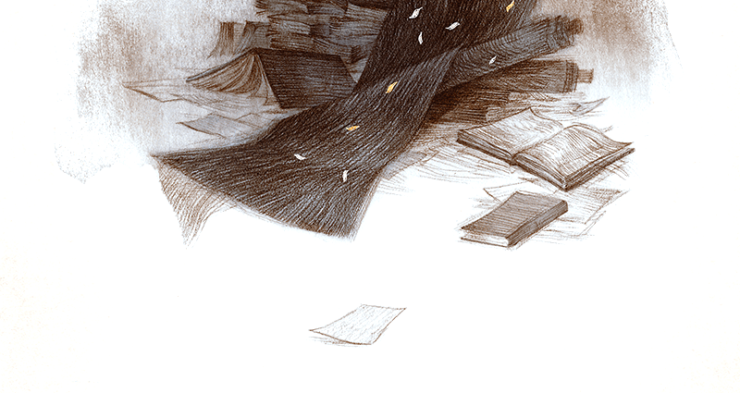
The Bodies of the Girls Who Made Me: Fanfic and the Modern World by Seanan McGuire (April 9, 2018)
Seanan McGuire has some strong opinions about fanfic, and she writes from deep personal experience about its value—as a way for people to interact with the stories they love, as a way of learning to craft their own stories, as a way of challenging and broadening the narrow limits of default representation. Without pulling any punches, she makes her case for the importance of fanfic, and the hypocrisy and shortsightedness of people who look down on it.
This piece is smart, candid, entertaining, and makes some truly excellent points that are well worth considering (and if it inspires a few more folks to dabble in fanfiction—well, the more the merrier!).
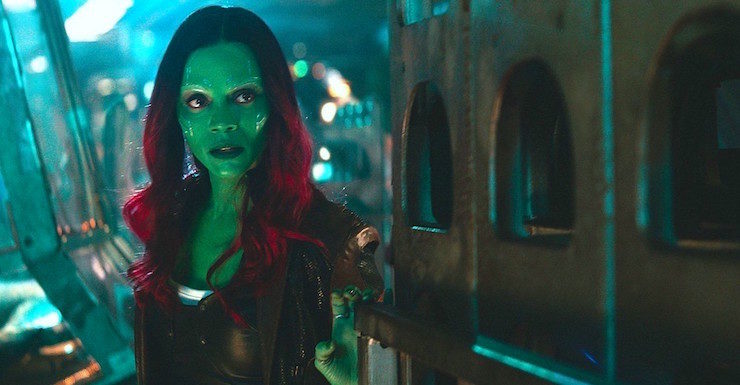
It’s Time to Talk About Marvel’s Gamora Problem by Brandon O’Brien (May 17, 2018)
Along with Black Panther, Avengers: Infinity War was one of this 2018’s biggest blockbusters, making this another banner year for the Marvel Cinematic Universe. And while Infinity War offered plenty of action and some interesting character development, one aspect of the movie was often overlooked in discussions and reviews—the treatment of Gamora.
In detailing his reaction to Gamora’s entire plotline and her ultimate fate, Brandon O’Brien poses some difficult questions about the nature of abusive relationships and the way popular culture depicts abusers and victims. Whether you completely agree with his interpretation of the film or not, these questions have value and are worth considering, and we believe that the discussions they inspire are important, even (perhaps especially) when they touch on such complex and thorny issues.
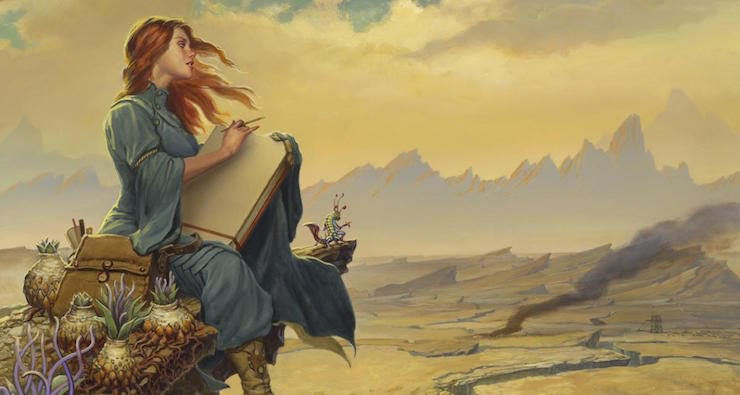
Ideal Heroes: Mental Illness in Brandon Sanderson’s Stormlight Archive by Paige Vest and Ross Newberry (June 5, 2018)
Describing the overall theme of Brandon Sanderson’s Stormlight Archive series as “broken people save the world,” Ross Newberry and Paige Vest set out to illuminate why many of these characters resonate so strongly with readers who have experienced trauma and struggled with depression, anxiety, and mental illness. In the course of this frank, open, and profoundly personal discussion, Ross and Paige touch on the importance of representation of non-neurotypical people in fiction, and the ways in which the journeys of characters like Kaladin, Shallan, Lift, and Dalinar can offer hope and inspiration to readers coping with their own mental or emotional difficulties.
Both the article and the conversation that follows it in the comment section are remarkable, underscoring the power of fantasy fiction, fandom, and community in a way that’s truly special.
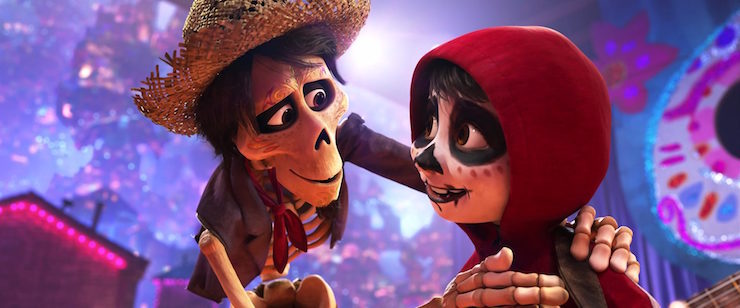
The Pixar Rewatch by Mari Ness (Series)
Mari Ness has long been one of Tor.com’s most frequent and valued contributors—since 2009, she’s covered the work of L. Frank Baum, Madeleine L’Engle, Roald Dahl, Lloyd Alexander, C.S. Lewis, and many other classic works of children’s fantasy literature. Her ongoing “On Fairy Tales” column is a fascinating, masterful deep dive into the tangled roots of seemingly familiar tales and folklore, which are often far darker and stranger than the versions we know today. Her Pixar Rewatch is in many ways an extension of the much larger project that began with the Disney Read-Watch series, in which Mari discussed every animated Disney film to date alongside essays on the books, fairy tales, and other source materials on which the movies were based.
As of December 2018, the Pixar Rewatch has now caught up to the studio’s most recent releases (through The Incredibles 2), and each individual article stands as a lovely, meticulously researched thesis on each of these films, from Toy Story and Up to Inside Out and Coco.

Why I’m Obsessed with the Outlander Theme Song by Natalie Zutter (August 3, 2018)
Bear McCreary has composed some of the greatest television scores of all time for genre shows like Battlestar Galactica, The Walking Dead, and our beloved Black Sails (maybe not technically SF/F, but it has many fabulous pirates, so whatever). In this piece, Natalie Zutter uses McCreary’s glorious Outlander theme song to illuminate not only the relationship between the music and the events of the series, but how a dynamic theme song and credit sequence can enhance the experience of watching your favorite shows, from Buffy to Game of Thrones.
By incorporating different historical and cultural elements into the theme song for each new season of Outlander, McCreary’s music evolves along with the characters and settings, providing the ideal soundtrack for a story in which past, present, and future are always tangling together in fascinating ways…
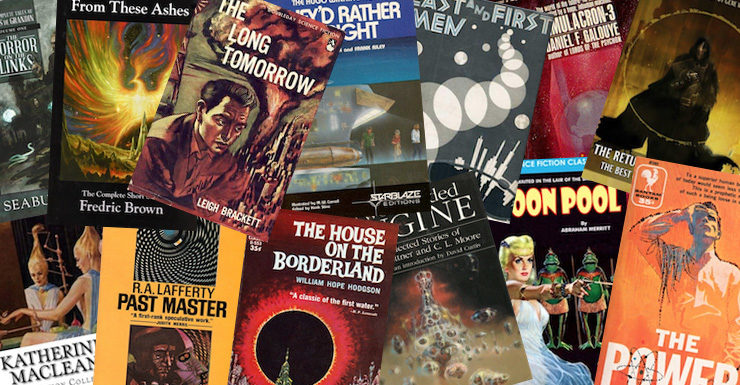
Who Are the Forgotten Greats of Science Fiction? by James Davis Nicoll (September 4, 2018)
If you’re looking for excellent, highly entertaining book recommendations and fun literary discussions, you can always count on James Davis Nicoll for well-informed opinions on science fiction history, settings, and tropes. In this article, he turns a spotlight on every recipient of the Cordwainer Smith Rediscovery Award, created in 2001 to draw attention to the work of unjustly forgotten SF authors. In addition to providing a pithy sketch of each winner’s career and notable works, the piece deftly draws readers into the conversation, resulting in a lively discussion of other works and authors that deserve to be rediscovered, embraced, and celebrated. The result is a veritable treasure trove of information and recommendations that might add a whole new dimension to your TBR pile…
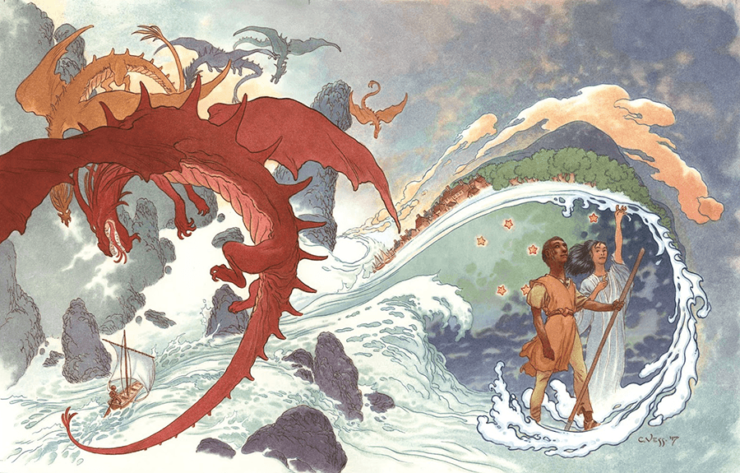
How A Wizard of Earthsea Made Me a Fantasy Reader by Molly Templeton (October 29, 2018)
This year marked the 50th anniversary of Ursula K. Le Guin’s A Wizard of Earthsea, and Molly Templeton launched a weeklong celebration of different aspects of the Earthsea universe with this personal glimpse into her own history as a reader of fantasy. As she writes, “A Wizard of Earthsea was the book that redefined reading for me—what I wanted from stories, and what I got out of them.”
As readers, we’ve all experienced eye-opening moments upon encountering certain stories that leave us permanently changed in some way. This essay captures that particular magic so eloquently, while focusing on the two aspects of the book that resonated, in very different ways, with this individual reader’s personality and experiences. It’s both a tribute to Le Guin’s writing and a meditation on what it means to be a reader of fantasy—and if you’re interested in reading the rest of the excellent Earthsea essays in this series, you can find them here.
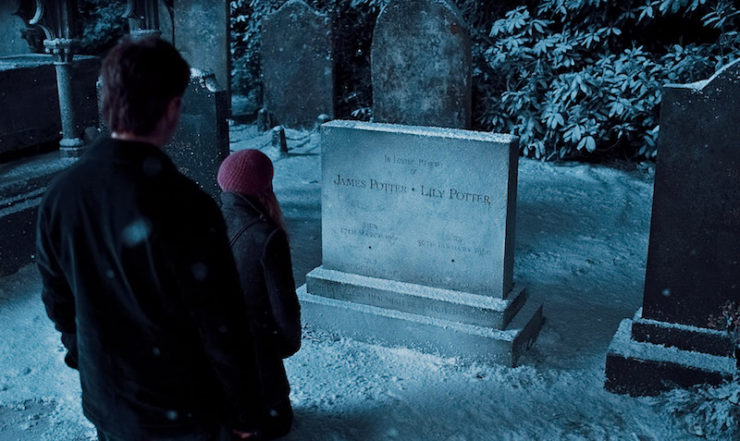
Moral Kombat: How Narnia and Harry Potter Wrestle with Death and Rewrite Christianity by Leah Schnelbach (October 31, 2018)
Has there ever been a pop culture phenomenon more death-obsessed than Harry Potter? Perhaps not, but in many ways the series (and its recent continuation in Harry Potter and the Cursed Child) are in conversation with the fantasy of C.S. Lewis.
In this fascinating in-depth analysis, Leah Schnelbach details how both Rowling and Lewis weave Christian symbolism into their respective mythologies, but with very different intentions, and how they eventually come to very different moral conclusions about the nature of pain, loss, trauma, and redemption.
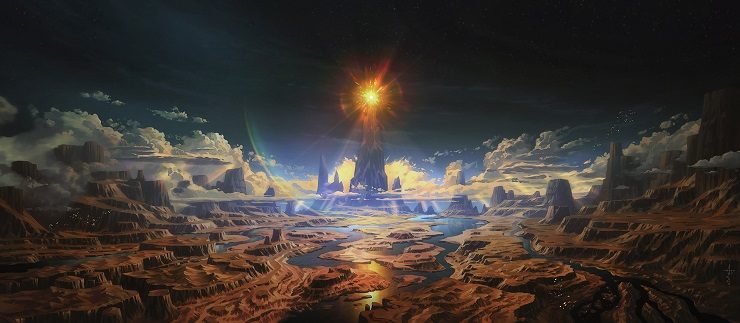
The Silmarillion Primer by Jeff LaSala (Series)
Finally, this list just would not be complete without an enthusiastic round of applause for the recently completed Silmarillion Primer. Over the last 14 months, Jeff LaSala has provided a rollicking, top-down, incredibly informative introduction to Tolkien’s “hot mess of a masterpiece,” from The Ainulindalë through the Dawning of the Fourth Age. The perfect resource for casual readers who could use an experienced guide through Tolkien’s imposing legendarium, the Primer is also a great way for die-hard fans to revisit and engage with the work, debate theories and interpretations, and trade puns, trivia, and the occasional Rush or Led Zeppelin reference.
Taken as a whole, the Silmarillion Primer is a truly impressive accomplishment, combining lively storytelling, humor, criticism and textual analysis, and an abiding love of Tolkien’s world in all its majestic glory and weirdness. It’s been a hell of a ride.










